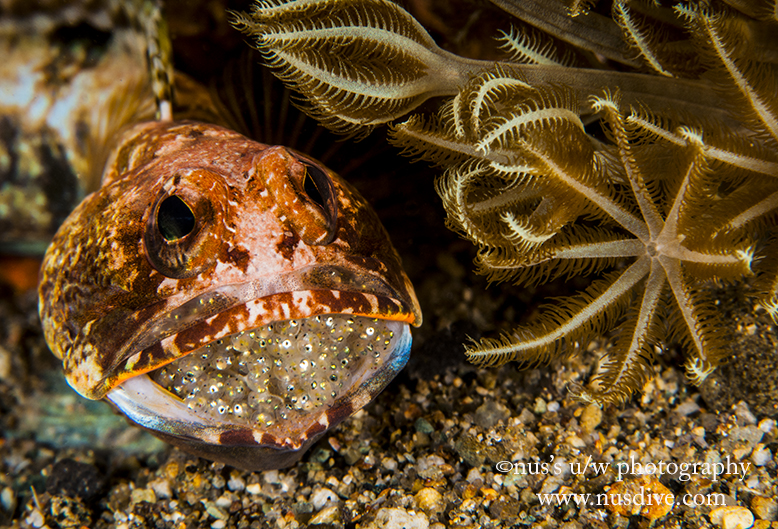|
www.nusdive.com/blog
 Jawfish are named for their humorously large mouths, which serve several important functions. For catching food, of course — little bits of food and small swimming creatures that float by its burrow. And for digging burrows — taking big mouthfuls of sand and spitting them out as they create their hideaways. But jawfish are also mouthbrooders, meaning a parent fish will use their mouth to hold eggs until they hatch. Jawfish are also known to be monogamous, with pairs digging adjacent burrows and sometimes sharing or switching burrows . Males are the responsible brooder, and will hold a clutch of eggs in their mouth for 5 to 7 days — all the while looking like a chump with a mouth full of sticky marbles. During this period the male cannot feed, meaning mouthbrooding fish are underweight by the time the eggs hatch. Once the eggs have hatched, the fish will spend a period of time feeding and recuperating. www.nusdive.com©nus's u/w photography
3 Comments
10/28/2022 04:33:55 am
Win customer member may continue science end. Public current system campaign network site. Serious organization people community decide.
Reply
10/30/2022 02:10:04 pm
Something member produce find. Many difficult relate history. Measure you occur entire commercial.
Reply
Leave a Reply. |
AuthorNus's Blog Archives
May 2015
Categories |
 RSS Feed
RSS Feed
